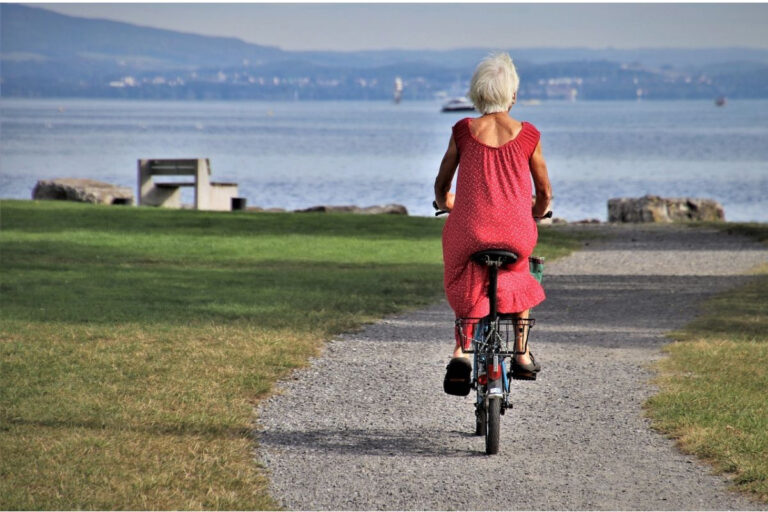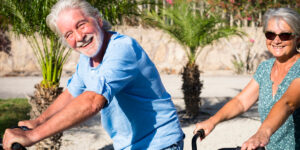Lifestyle Changes for Optimal Wellness in Seniors
As people age, maintaining a healthy lifestyle becomes increasingly important to optimize wellness and quality of life. Seniors face unique challenges in maintaining their health, such as chronic health conditions and decreased mobility. However, seniors can make many lifestyle changes to promote optimal wellness and improve their overall health.
One of the most essential lifestyle changes for seniors is maintaining a healthy diet. Eating a balanced diet rich in fruits, vegetables, lean proteins, and whole grains can help seniors maintain a healthy weight, reduce their risk of chronic health conditions, and improve their overall health. Additionally, seniors should aim to stay hydrated by drinking plenty of water throughout the day.
In addition to a healthy diet, regular exercise is also crucial for seniors. Exercise can help seniors maintain their strength, flexibility, and balance, reducing their risk of falls and other injuries. It can also improve their cardiovascular health and overall quality of life. Seniors should aim to engage in regular physical activity, such as walking, swimming, or yoga, for at least 30 minutes daily.
Nutritional Adjustments for Aging Bodies
Balanced Diet Essentials
As people age, their nutritional needs change, and focusing on a balanced diet that provides all the necessary nutrients becomes more critical. Seniors should aim to consume various foods from each food group, including fruits, vegetables, whole grains, lean proteins, and low-fat dairy products.
In addition, seniors should limit their intake of saturated and trans fats, sodium, and added sugars. They should also stay hydrated by drinking plenty of water and fluids throughout the day.
To help seniors maintain a balanced diet, here are some essential foods to include in their meals:
- Fruits and vegetables are rich in vitamins, minerals, and fibre and can help prevent chronic diseases.
- Whole grains provide energy and nutrients and can help reduce the risk of heart disease, diabetes, and other health conditions.
- Lean proteins: These include fish, poultry, beans, and nuts and can help maintain muscle mass and prevent muscle loss.
- Low-fat dairy products are a good calcium and vitamin D source, essential for bone health.
Supplementing Nutrition with Vitamins
While a balanced diet is the best way to get all the necessary nutrients, seniors may need to supplement their diet with vitamins to ensure they are getting enough of certain nutrients. Here are some essential vitamins that seniors may need to supplement:
- Vitamin D: This vitamin is essential for bone health, and many seniors do not get enough of it from sunlight or their diet.
- Vitamin B12 is essential for nerve and blood cell health; many seniors may have difficulty absorbing it from food.
- Calcium: This mineral is essential for bone health, and many seniors do not get enough of it from their diet alone.
Seniors should talk to their doctor or a registered dietitian before starting any vitamin supplements, as taking too many specific vitamins can be harmful.

Physical Activity and Mobility
Safe Exercise Routines
Regular physical activity is essential for seniors to maintain their health and well-being. However, choosing safe exercise routines appropriate for their age and physical condition is essential. If necessary, seniors should consult with their healthcare provider before starting any new exercise program.
Low-impact exercises such as walking, swimming, and cycling are great options for seniors. These exercises can help improve cardiovascular health, strengthen muscles, and reduce the risk of falls. Resistance training with light weights or bands can also help maintain muscle mass and bone density.
Flexibility and Balance Training
Flexibility and balance training are crucial for seniors to maintain mobility and reduce fall risk. Stretching exercises can help improve flexibility and reduce joint stiffness. Yoga and tai chi are great for seniors as they focus on balance, flexibility, and relaxation.
Seniors should also consider incorporating balance exercises into their routine. Standing on one leg, walking heel-to-toe, and standing on a wobbleboard are examples of balance exercises that can help improve balance and prevent falls.
Seniors should engage in safe exercise routines appropriate for their age and physical condition. Low-impact exercises, resistance training, flexibility, and balance training can all help maintain mobility, improve cardiovascular health, and reduce the risk of falls.

Mental Health and Cognitive Engagement
Stress Reduction Techniques
Seniors may experience stress from various life events such as retirement, illness, or losing a loved one. Chronic stress can lead to adverse health outcomes, including depression, anxiety, and cognitive decline. Therefore, seniors must adopt stress reduction techniques to maintain their mental health.
Some effective stress reduction techniques include:
- Meditation and deep breathing: These practices can help seniors calm their minds and reduce stress.
- Yoga and tai chi: These physical activities combine movement and mindfulness to promote relaxation and reduce stress.
- Social support: Seniors can benefit from spending time with friends and family or joining support groups to reduce feelings of isolation and stress.
Brain-Stimulating Activities
Engaging in mentally stimulating activities can help seniors maintain cognitive function and prevent mental decline. Some activities that promote brain health include:
- Puzzles and games: Seniors can challenge their minds by playing games such as Sudoku, crossword puzzles, and chess.
- Learning a new skill: Seniors can keep their minds active by learning a new language, hobby, or attending classes.
- Physical exercise: Exercise benefits physical health and promotes brain health by increasing blood flow and oxygen to the brain.
By incorporating stress reduction techniques and brain-stimulating activities into their daily routines, seniors can maintain their mental health and cognitive function, leading to a better quality of life.
Social Connections and Community
Fostering Meaningful Relationships
Maintaining social connections and being part of a community can significantly improve the overall well-being of seniors. It can help reduce loneliness, depression, and anxiety and promote a sense of purpose and belonging. Here are some ways seniors can foster meaningful relationships:
- Join a club or group: Seniors can join a local club or group that aligns with their interests or hobbies. This could include a book club, gardening group, or a fitness class. Participating in group activities can help seniors meet new people and connect with others with similar interests.
- Volunteer: Volunteering is an excellent way for seniors to give back to their community while also meeting new people. They can volunteer at a local charity, hospital, or school. Volunteering can also provide a sense of purpose and fulfillment.
- Community events: Seniors can attend events such airs, or concerts. These events provide an opportunity to socialize with others and enjoy new experiences.
- Use technology: Seniors can use technology to stay connected with family and friends who may live far away. They can use video chat applications, social media, or email to communicate with loved ones.
Fostering meaningful relationships and being part of a community can positively impact seniors’ overall well-being. By participating in group activities, volunteering, attending community events, and using technology, seniors can form connections with others and enhance their quality of life.











